In comparing and contrasting U.S. and Chinese diplomacy, China is able to catch more flies with honey. China’s investment first, ask questions later approach offers politicians the opportunity to pass any consequences of relations with China off to their successors.
For China, diplomacy is often a cookie cutter affair that involves flattering big and small states alike. Whereas U.S. diplomacy is driven by the caprices of congress members who can put small states through make or break challenges, China’s diplomacy is often a debt trap in glittering disguise.
Around this time last year, President Donald Trump touched down at Beijing airport and was greeted by cheering crowds.
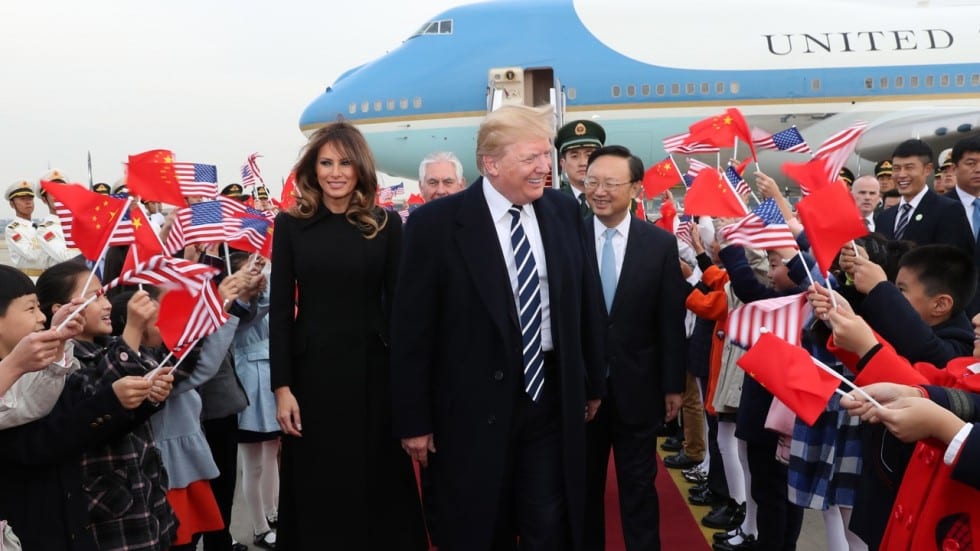
Then the President drove away in a motorcade.

The heavily choreographed fanfare continued with a visit to the Forbidden City, the old Chinese Imperial palace and, before sitting down with assorted Chinese cabinet members, the President walked the red carpet in front of the Great Hall of the People.

This visit was promoted by the Chinese Communist Party as “state visit-plus.” The Chinese media, both state run and independent, responded by hyping the visit as much as possible, describing the events then in progress as “historic,” “unprecedented,” and “iconic.”
But how historic was it?
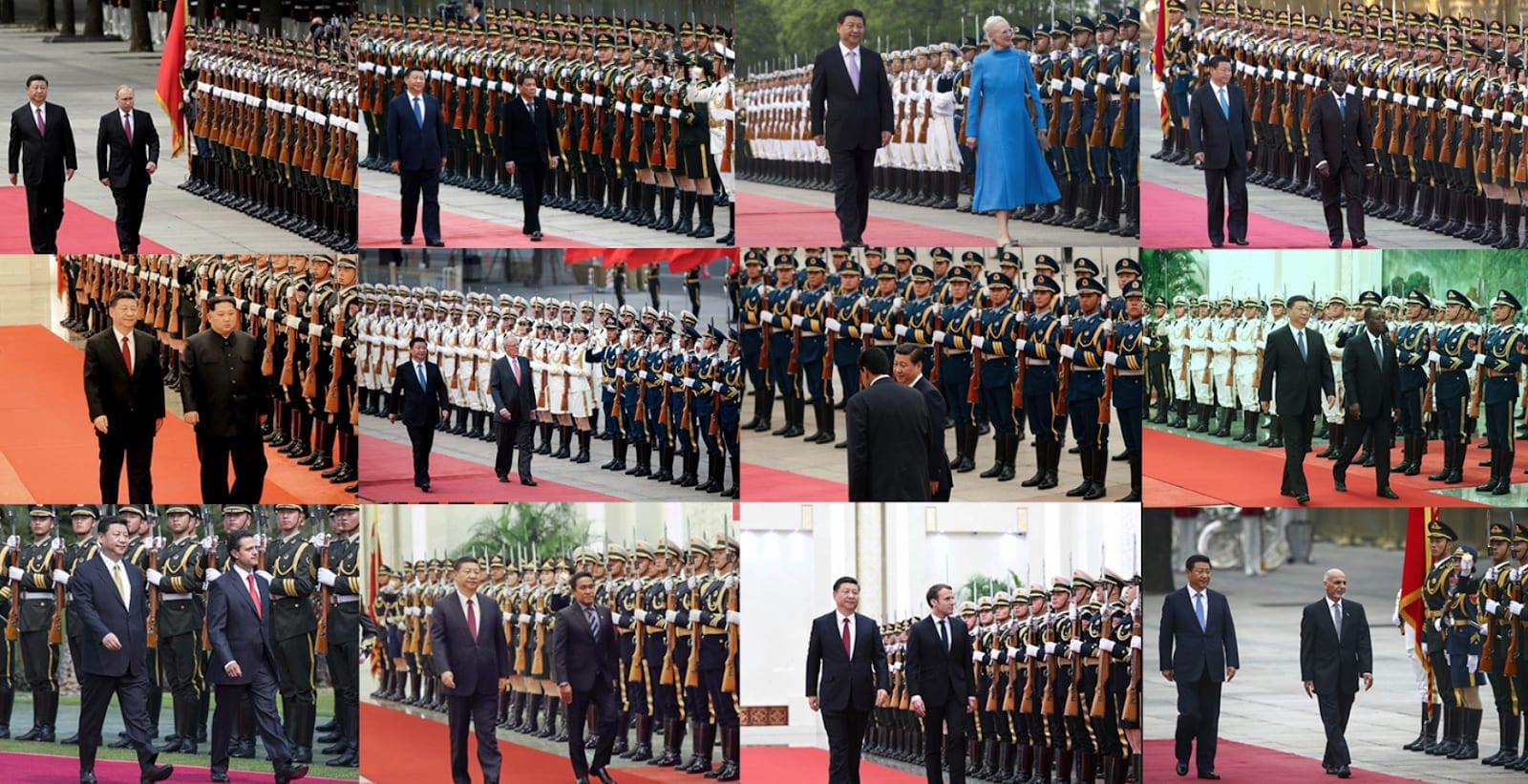
None of the politicians photographed above visited the Forbidden City as Trump did, but all experienced the same pattern. Once past the uniformed soldiers, visiting politicians faced the next phalanx – a long table of Chinese ministers reading prepared statements in turn from scripts.
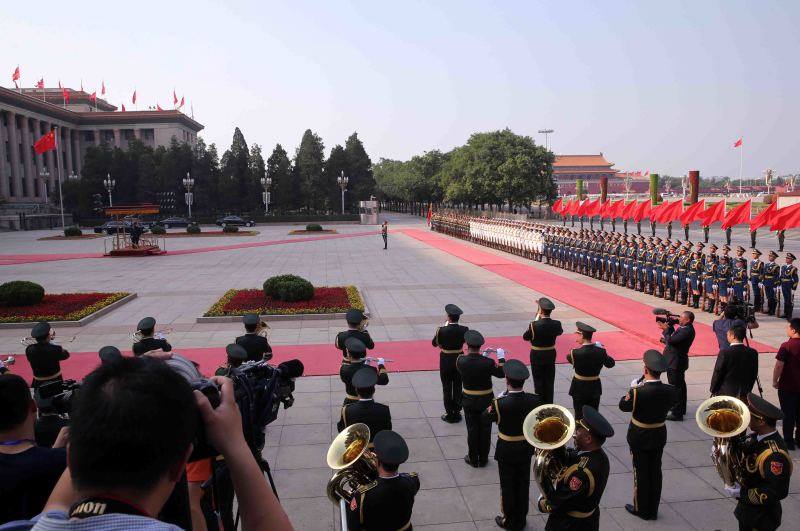
Flattery vs. Humiliation and
the Story of Montenegro
Small states receive near identical treatment to larger countries. These shows usually feature the dangling of potential Chinese investment in visiting countries. Such public displays of respect allow visiting leaders to reap a harvest of positive press coverage.
Iceland’s ambassador to China, Gunnar Snorri Gunnarsson, argued that China’s showmanship is a welcome display of calculated flattery for small countries accustomed to short shrift.
“They are a realistic global power, so they know the difference between big and small countries. But on paper and in principle they say they want to respect smaller countries … from China’s perspective, all countries are small,” said Gunnarsson who drew a contrast between working with the Chinese and interacting with the U.S.
He characterized the U.S. experience as relatively humiliating.

This calculated use of bureaucratic grandeur is in accordance with millennia of Chinese diplomacy, as U.S. statesman Henry Kissinger described in his book On China.
“The Emperor did not hold ‘summit meetings’ with other heads of state; instead, audiences with him represented the ‘tender cherishing of men from afar,’” wrote Kissinger.

For small nations seeking diplomatic agreements with the United States, there’s no equivalent to settling into the warm, if tediously scripted, embrace of Chinese diplomacy.
To make headway in Washington, a nation must first navigate the glad-handing warren that is the U.S. Senate. Although this can be straightforward for a wealthy nation, take Saudi Arabia’s $20 million donation to an influential think tank as an example, smaller nations must demonstrate considerable patience.

Montenegro’s emergence from the shattered Yugoslavia is owed in large part to its cultivation by the efforts of senators Bob Dole and John McCain. The twists and turns of its diplomacy are labyrinthine, but its experience with obtaining NATO membership is illustrative of the risks of engaging in diplomacy with the U.S.
Senator John McCain first started publicly advocating for Montenegro-NATO-Membership in 2013, a goal that would require four years to achieve. In those years foreign and domestic opponents of Montenegro’s diplomacy mobilized.
“Russian intelligence operatives plotted to overthrow the democratically elected government of Montenegro and murder its prime minister,” Sen. John McCain said in an op-ed. “In Russia’s eyes, Montenegro’s Oct. 16 [2016] election was a last chance to stop it from joining NATO.” In October 2015, protestors loyal to Serb-nationalist parties, hostile to NATO, had taken to the streets and had to be dispersed by tear gas. An ensuing year of tension was punctuated by Montenegro’s 2016 elections, which were accompanied by the arrests of the coup plotters and the shut down of the country’s most popular social media sites to minimize dissent.
In spite of the bedlam, Montenegro joined NATO in June 2017, and last month, NATO Secretary General Jens Stoltenberg hailed the benefits of Montenegro’s membership.
“The fact that Montenegro became a member has been good for Montenegro, it has been good for the stability of the region. But it has also helped to create the basis, the framework for more investments, for economic prosperity,” said Stoltenberg. “After Montenegro joined the Alliance, investments from NATO allies have doubled,” Stoltenberg bragged, at a press conference where he laid out the case for Macedonian NATO membership.
Macedonia is likely to become the 30th NATO member and will begin accession talks in the next several weeks. U.S. and Russian espionage over Macedonia’s NATO membership has already spilled into the press.
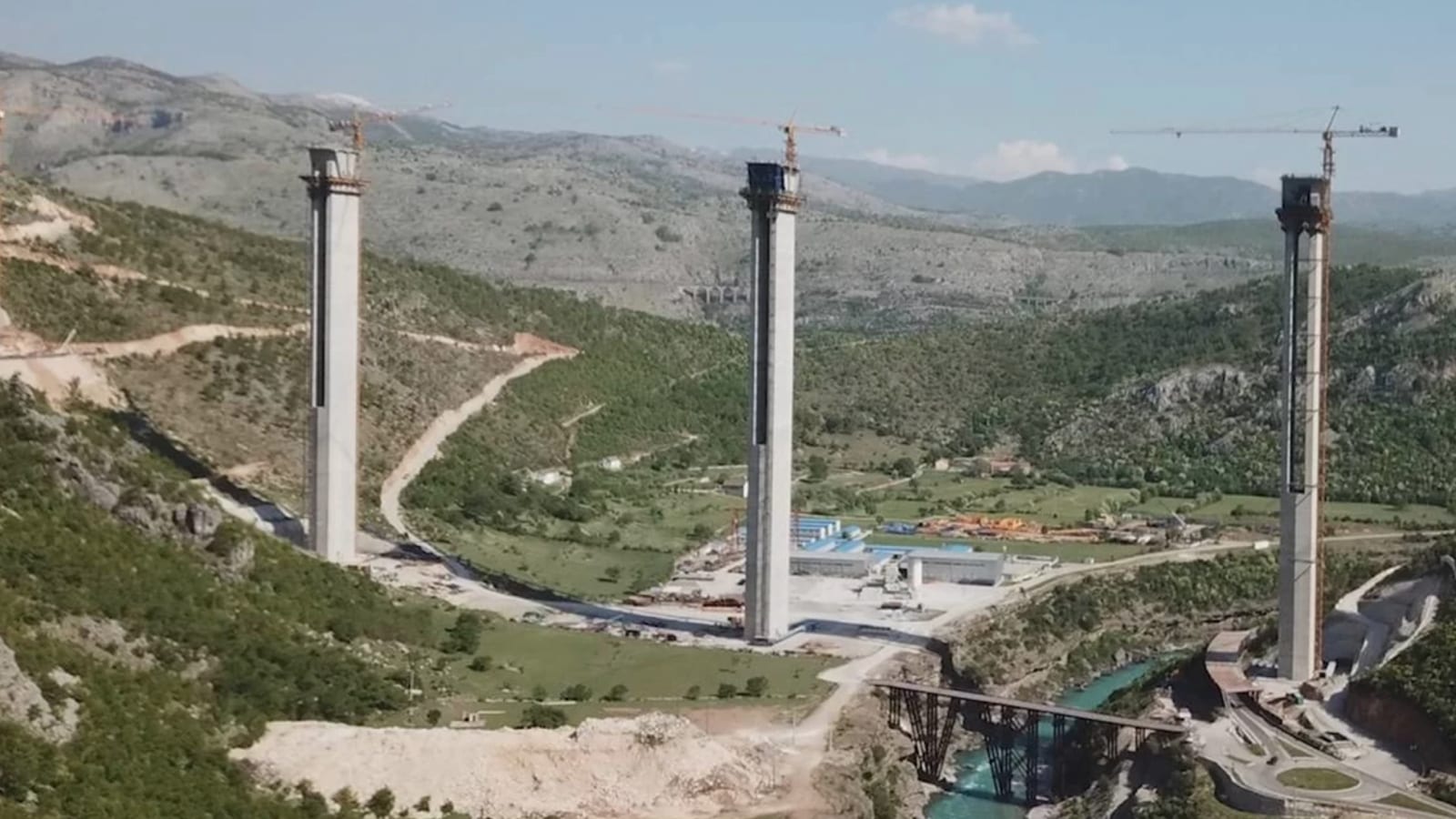
Give them fine food in order to corrupt their mouth … give them music and women in order to corrupt their ears …
-Minister Jia Yi, the ‘Five Baits’
China’s investment first, ask questions later approach offers politicians the opportunity to pass any consequences of relations with China off to their successors.
For example, in 2015, Ranil Wickremesinghe was elected president of Sri Lanka. He had promised to walk back the previous administration’s commitments to the Chinese.
“We will have a balanced approach between India and China, unlike the current regime, which was antagonizing India almost by its closeness to China,” said a spokesperson for the new president, as the Sri Lankan government announced that it would cancel a planned $1.5 billion deal to develop the port of Colombo with the Chinese.
And yet, when it came into power, the new government discovered that it was in too deep to back out of the project.
“The revenues [of the government] were insufficient to pay the interest charges, let alone capital repayment,” said Ravi Karunanayake, the new government’s finance minister. “A new government can’t just stop loans. It’s a relay; you need to take them until economic discipline is introduced.”
In the face of a tsunami of loan repayments, over $4 billion a year, the island had no choice but to capitulate to the Chinese. They ceded a 99-year lease on another port in Hambantota to China in exchange for debt relief, and have continued to take loans from the Chinese to pay down interest on their existing loans.

These projects fall under the umbrella of China’s One Belt, One Road initiative, a broad ranging infrastructure program seeking to up trade across continental Eurasia. In effect, China has stepped into the post World War II role of the United States, in which the U.S. revitalized prostrate economies with the Marshall Plan.
There are differences in means. The Marshall Plan rested on the forgiveness of debts incurred in the two World Wars, but development is the end in both cases. With massive foreign investment ever less feasible for the debt sodden U.S., the primary carrot now on offer in U.S. diplomacy is membership in assorted international institutions, such as the Cold War era NATO Alliance, Bretton Woods’ International Monetary Fund and World Bank, trade deals like the now defunct NAFTA, and U.N. membership.
Although the Trump Administration, and especially National Security Advisor John Bolton, have been sharply critical of all these institutions, they continue to expand. An international-institution-centric approach to diplomacy jibes with the history of Western civilization; there wouldn’t be much Western civilization to write about if the Greeks hadn’t formed a proto-NATO to see off the Persian Empire.
Similarly, the deployment of lavish financing for pet projects in foreign countries is a modern iteration of millennia-long Chinese diplomatic practice.
One of the most famous dictums in Chinese history comes from a minister’s guidelines for using the “Five Baits” to corrupt foreigners into acquiescing to China’s diplomacy. The minister Jia Yi was advising an emperor from the Han Dynasty on how to influence an economically and culturally backward (i.e. not Chinese) independent nation, suggesting:
“To give them … elaborate clothes and carriages in order to corrupt their eyes; to give them fine food in order to corrupt their mouth; to give them music and women in order to corrupt their ears; to provide them with lofty buildings, granaries and slaves in order to corrupt their stomach . . . and, as for those who come to surrender, the emperor [should] show them favor by honoring them with an imperial reception party in which the emperor should personally serve them wine and food so as to corrupt their mind. These are what may be called the five baits.”

“Because I was traveling and you were so nice and you said, ‘we’ll just do a quick dinner’. And I think it [had to have lasted] at least two hours and we enjoyed every minute of it,” Trump said to President Xi.
What President Trump perceived as spontaneous largesse is strikingly similar to hospitality extended to the first British ambassador sent to the imperial Chinese court in 1793 experienced, as Kissinger’s On China describes:
“After bestowing gifts on [George] Macartney and his party, the Emperor flattered the British party by “sen[ding] us several dishes from his own table” and then giving “to each of us, with his own hands, a cup of warm wine, which we immediately drank in his presence.”
[Title image by Ashley Bogdan for Lima Charlie]
Diego Lynch, LIMA CHARLIE NEWS
Lima Charlie provides global news, featuring insight & analysis by military veterans and service members Worldwide.
For up-to-date news, please follow us on twitter at @LimaCharlieNews
In case you missed it:

![image Resistance mounts against China's President Xi Jinping [Lima Charlie News][Photo: Johannes Eisele / AFP]](https://limacharlienews.com/wp-content/uploads/2018/08/Resistance-mounts-against-Chinas-President-Xi-Jinping.jpg)
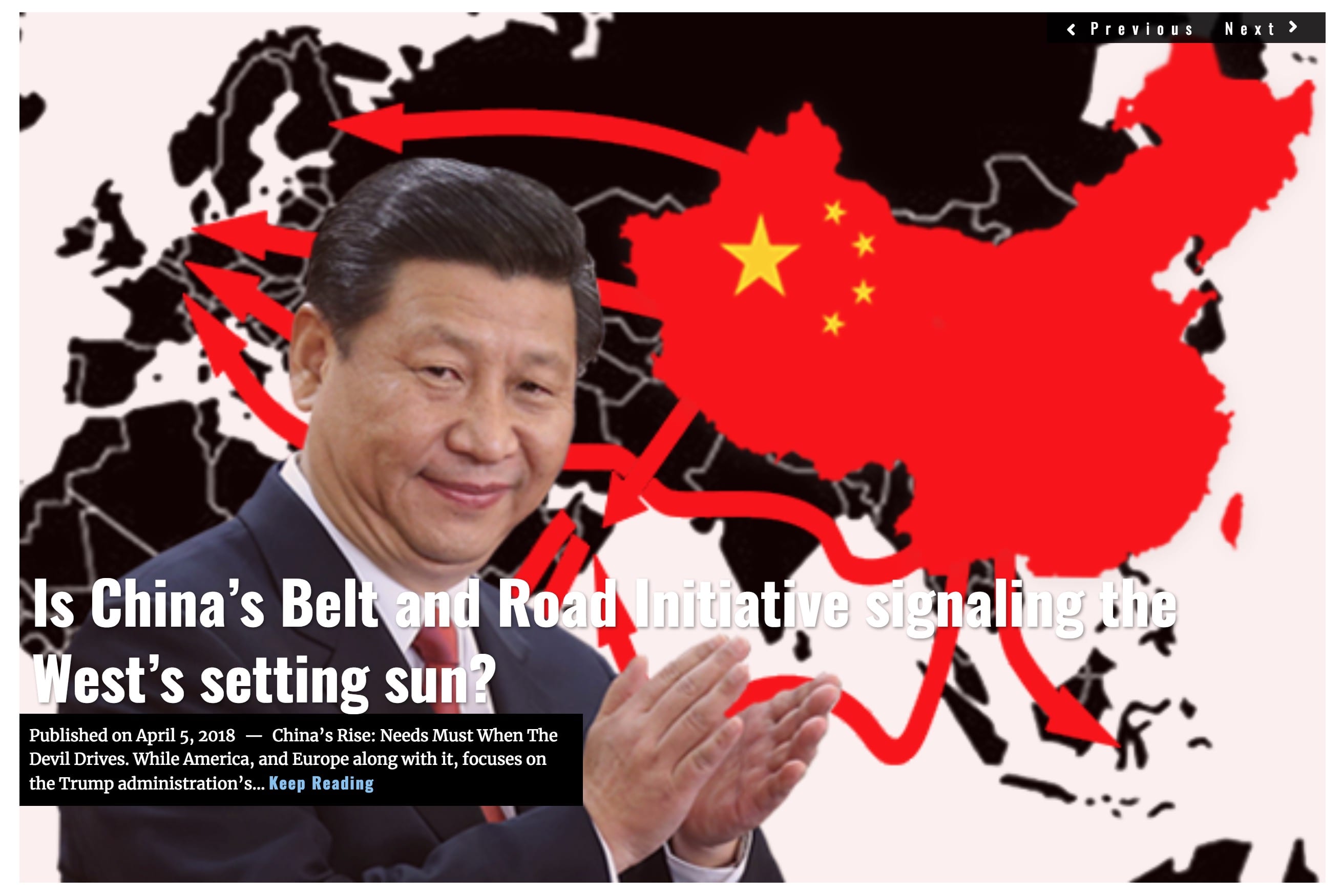
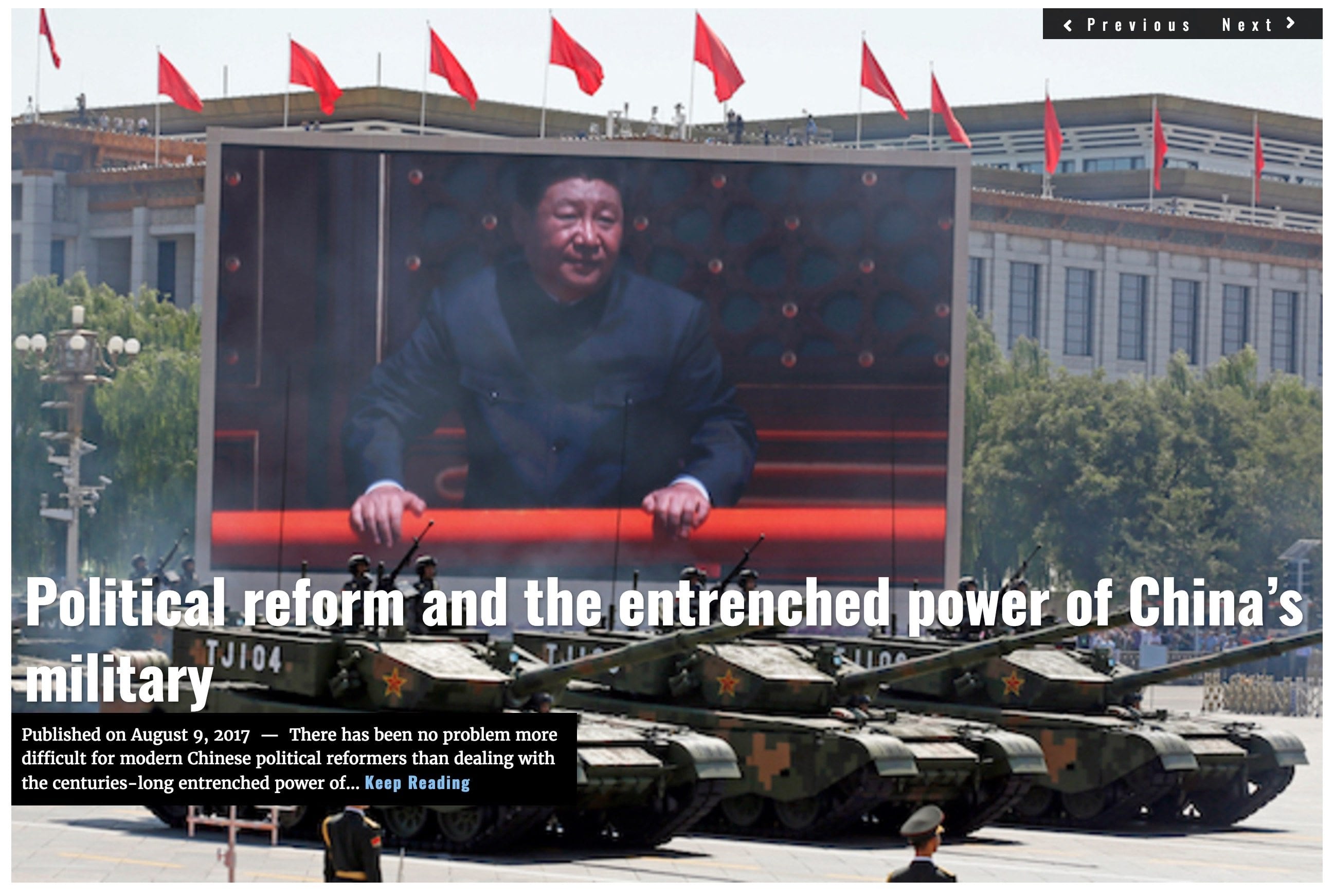

![Image Huawei – China’s telecom giant hits a giant wall [Lima Charlie News]](https://limacharlienews.com/wp-content/uploads/2019/01/Huawei-–-China’s-telecom-giant-hits-a-giant-wall-480x384.png)
![Image Tariffs – a mixed blessing for American businesses [Lima Charlie News]](https://limacharlienews.com/wp-content/uploads/2018/12/Tariffs-–-a-mixed-blessing-for-American-businesses-Lima-Charlie-News-480x384.png)



![Blossoming Russo-Turkish alliance leaves U.S., NATO behind [Lima Charlie News]](https://limacharlienews.com/wp-content/uploads/2019/07/Russia-Turkey-alliance-leaves-U.S.-NATO-behind-480x384.png)

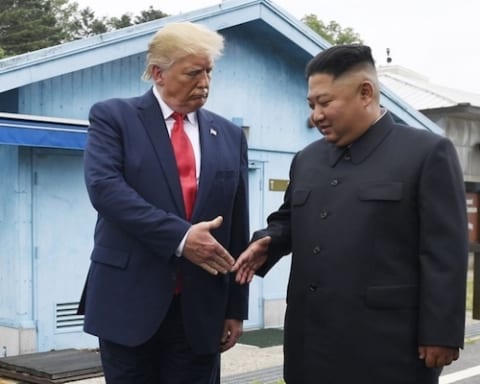
![Image Huawei – China’s telecom giant hits a giant wall [Lima Charlie News]](https://limacharlienews.com/wp-content/uploads/2019/01/Huawei-–-China’s-telecom-giant-hits-a-giant-wall-150x100.png)
![Image Tariffs – a mixed blessing for American businesses [Lima Charlie News]](https://limacharlienews.com/wp-content/uploads/2018/12/Tariffs-–-a-mixed-blessing-for-American-businesses-Lima-Charlie-News-150x100.png)